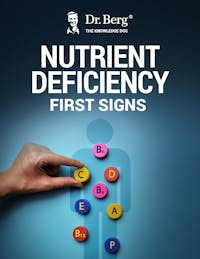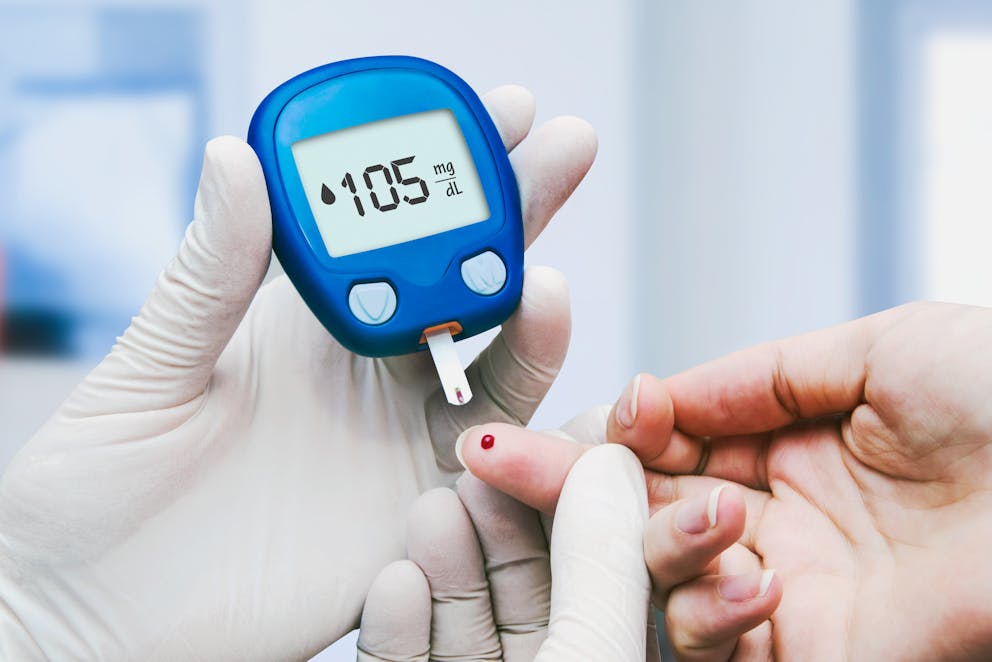No More Gallbladder Now I Can Eat What I Want

The First Signs of a Nutrient Deficiency
Learn how to recognize early symptoms related to specific nutrient deficiencies
Receive a downloadable list of early indicators your body is lacking key nutrients

The First Signs of a Nutrient Deficiency
Learn how to recognize early symptoms related to specific nutrient deficiencies
Receive a downloadable list of early indicators your body is lacking key nutrients

The First Signs of a Nutrient Deficiency
Learn how to recognize early symptoms related to specific nutrient deficiencies
Receive a downloadable list of early indicators your body is lacking key nutrients

The First Signs of a Nutrient Deficiency
Learn how to recognize early symptoms related to specific nutrient deficiencies
Receive a downloadable list of early indicators your body is lacking key nutrients

The First Signs of a Nutrient Deficiency
Learn how to recognize early symptoms related to specific nutrient deficiencies
Receive a downloadable list of early indicators your body is lacking key nutrients

The First Signs of a Nutrient Deficiency
Learn how to recognize early symptoms related to specific nutrient deficiencies
Receive a downloadable list of early indicators your body is lacking key nutrients

The First Signs of a Nutrient Deficiency
Learn how to recognize early symptoms related to specific nutrient deficiencies
Receive a downloadable list of early indicators your body is lacking key nutrients

The First Signs of a Nutrient Deficiency
Learn how to recognize early symptoms related to specific nutrient deficiencies
Receive a downloadable list of early indicators your body is lacking key nutrients

The First Signs of a Nutrient Deficiency
Learn how to recognize early symptoms related to specific nutrient deficiencies
Receive a downloadable list of early indicators your body is lacking key nutrients

The First Signs of a Nutrient Deficiency
Learn how to recognize early symptoms related to specific nutrient deficiencies
Receive a downloadable list of early indicators your body is lacking key nutrients

The First Signs of a Nutrient Deficiency
Learn how to recognize early symptoms related to specific nutrient deficiencies
Receive a downloadable list of early indicators your body is lacking key nutrients

The First Signs of a Nutrient Deficiency
Learn how to recognize early symptoms related to specific nutrient deficiencies
Receive a downloadable list of early indicators your body is lacking key nutrients

The First Signs of a Nutrient Deficiency
Learn how to recognize early symptoms related to specific nutrient deficiencies
Receive a downloadable list of early indicators your body is lacking key nutrients

The First Signs of a Nutrient Deficiency
Learn how to recognize early symptoms related to specific nutrient deficiencies
Receive a downloadable list of early indicators your body is lacking key nutrients

The First Signs of a Nutrient Deficiency
Learn how to recognize early symptoms related to specific nutrient deficiencies
Receive a downloadable list of early indicators your body is lacking key nutrients

The First Signs of a Nutrient Deficiency
Learn how to recognize early symptoms related to specific nutrient deficiencies
Receive a downloadable list of early indicators your body is lacking key nutrients
Having your gallbladder removed can be a scary life event. Understanding how the loss of this organ will affect your well-being can help you feel more comfortable as you begin navigating this life-changing event.
Learn about the gallbladder, it's main functions, and how it's removal affects the dietary tract.
Understanding Gallbladder Removal and Its Dietary Implications
The gallbladder may be a small organ, but its impact on digestion is large. This little organ stores bile, a liquid the liver produces that helps break down fats in your diet.
The Function of the Gallbladder in Digestion
When you chow down on a fatty meal, your gallbladder kicks into gear, squeezing out bile to mix with the food in your intestines. With bile, everything breaks apart easily and can be processed.
Gallstones or inflammation can block this process, though. If such conditions are severe enough, a medical professional may end up advising that your gallbladder be removed.
Common Reasons for Gallbladder Removal
A combination of high estrogen levels and insulin resistance has been linked to gallstone formation. Every year, around 600,000 Americans have gallbladder removal surgeries because of these issues.

Recognizing Symptoms of Insulin Resistance
If you're feeling like your meals are not leaving you satisfied, it might be time to check for insulin resistance. This condition can sneak up on you with cravings for sweets that no amount of willpower seems to shake off.
It can cause frequent urination, bloating, and even fatigue. These signs scream 'insulin resistance' and are also familiar companions of gallbladder problems.
Blood sugar levels swinging up and down at an unnatural rate can also be a sign of insulin resistance. Spotting these signals early may help steer clear from larger health bumps down the road.
The Importance of Addressing Root Causes Post-Surgery
When you wave goodbye to your gallbladder, you might feel immediate relief, but the underlying issues—why you needed surgery in the first place—are still problematic.
Gallbladder removal doesn't magically fix high estrogen or insulin resistance; these are the culprits often lurking behind those pesky gallstones.
Nutritional Deficiencies After Gallbladder Removal
Your gallbladder's gone, and suddenly, you're suffering from vitamin deficiencies. Without that little organ, fat-soluble vitamins A, D, E, and K are not taken in and used by the body. Think of night vision issues or scaly skin from too little vitamin A.
And if your bones are aching or you've got mood swings, you could be suffering a deficiency of vitamin.
Vitamin E keeps your heart beating properly and helps those cuts heal faster. Ignore it at your heart’s peril. Bruising easily can be a sign that your body is not absorbing enough vitamin K.
Foods to Include for Adequate Nutrition
Vitamins A, D, E, and K are absorbed less efficiently once the gallbladder has been removed. For this reason, it is important to eat much more of each vitamin to ensure that your body is able to get enough to stay healthy.
A splash of green from leafy veggies gives you vitamin K, while fish oils provide those nutrients like vitamins A and D. Nuts and seeds can boost vitamin E intake.
The Role of Bile Salts in Digestion Post-Surgery
Bile salts help your body absorb fat-soluble vitamins across smoothly.
After surgery, supplementation may aid digestion, letting us absorb these vital nutrients effectively despite lacking our natural bile storage unit.
Integrating Healthy Eating Habits with Lifestyle Choices
Finding the proper diet after gallbladder removal can feel like walking a tightrope.
You've got to consider how diets like intermittent fatsing or the keto diet will affect your new digestive needs.

Intermittent Fasting Without a Gallbladder
Intermittent fasting is popular, but without a gallbladder, you might wonder if it's still doable. Good news: It is. Your liver makes bile even sans gallbladder; it just doesn't get stored between meals anymore.
So when you fast intermittently, you may need to gradually ease into more extended periods and pay attention to how your body reacts—especially during mealtime reentry.
Pacing yourself is vital so you do not have difficulty adjusting to this eating pattern.
The Ketogenic Diet's Impact on Gallbladder Health
Keto enthusiasts rave about fat-burning bliss—but post-gallbladder? That high-fat life requires some tweaks. The reason lies in bile—or now, the lack thereof for storage purposes—which means digesting those fats isn't as smooth as before.
Adjusting fat intake and considering supplements are worth making here; they help maintain harmony within your new bodily rhythm.
Crafting a Post-Surgery Eating Plan
After gallbladder removal surgery, adopting a thoughtful eating plan becomes crucial for a smooth recovery. A strategic approach to a gallbladder removal diet, complemented by the supportive measures of a gallbladder cleanse, can help manage digestion and minimize discomfort.
This combination empowers individuals to navigate post-surgery challenges and promote overall digestive well-being.
Conclusion
Undergoing gallbladder removal is a significant medical event that can impact digestion and overall well-being.
Educating oneself about the function of the gallbladder and the dietary adjustments necessary post-surgery is crucial for managing this transition effectively.
By understanding how the absence of the gallbladder affects bile production and fat digestion, individuals can make informed choices to support their nutritional needs.
Establishing a tailored eating plan, possibly with supplementation, ensures a smoother recovery and promotes digestive health in the long term.
Previous blog
Is Kimchi Keto-Friendly?Next blog
What Causes Bruising Without Trauma
Popular
08/21/2024
53.6K views
02/23/2025
45.4K views
11/18/2024
270.1K views
03/18/2024
11/21/2022




